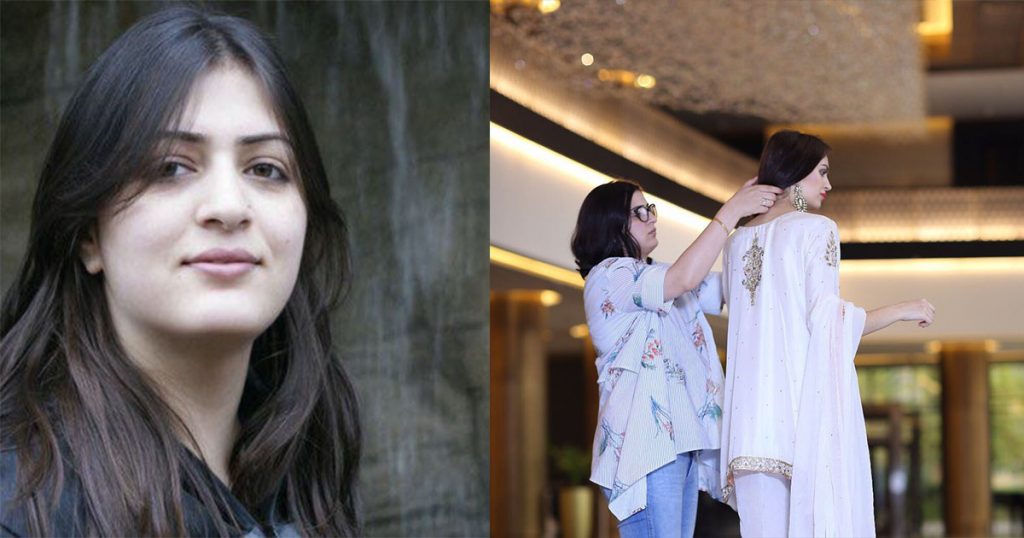Blog, Inspiring Kashmiris, Weddings in Kashmir
Meet The Kashmiri Designer Whose Latest Bridal Collection is Just Stunning
Tell us about yourself
I am Mariya Ashraf. My family is basically from Sopore, I was born and brought up in Srinagar and currently, I am settled in Qatar. I have done MBA from Amity University and MS from New York University, US. I am a certified project manager. Above everything else, I am a proud mother of a three year old.
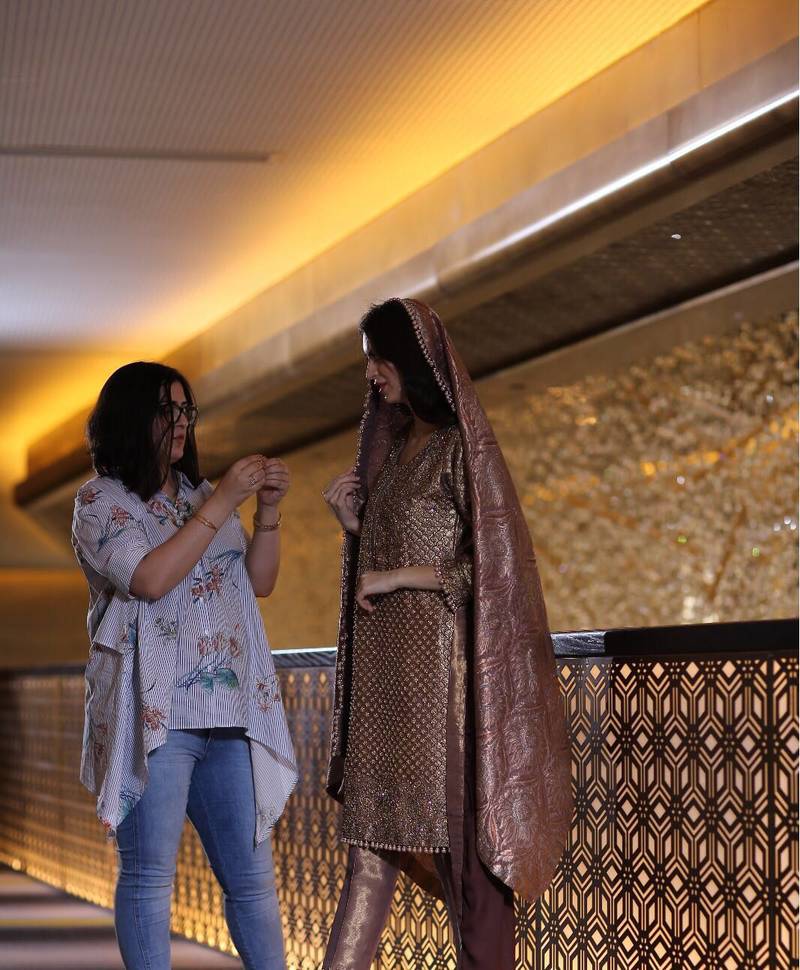
How did you get into clothing business?
I have been interested in fashion since I was a kid. I would design dresses for my dolls. Later I would plunk down to watch any old Hollywood classic movie or costume dramas and do my best to approximate the styles for my dresses. I would always tell people I want to become a designer although I never got to go to design school. The pattern, weave, embroidery, colors and textiles fascinate me. It’s a part of my life which always elevates my happiness. Designing clothes and working with my artisans makes me smile, opens my eyes, gives me hope and makes me live my dream. Very often I would just sketch and develop dresses for myself and family which gradually got extended to friends. With the appreciation and encouragement of friends and family, I became an independent dress maker and had a closed group of clientele before I launched my full fledged first collection in 2017 – Aroosi.
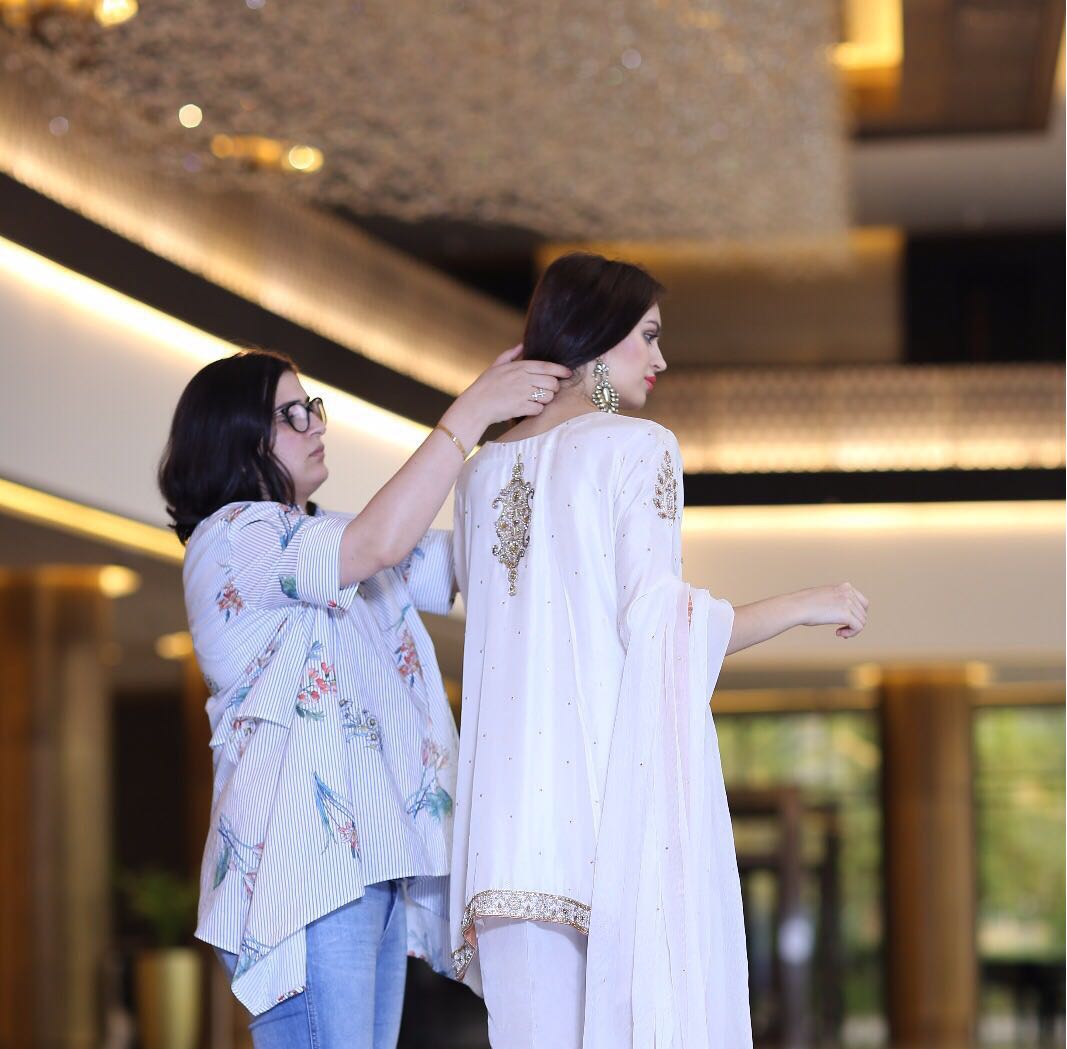
Tell us about Aroosi
Aroosi is the first collection of my label, Mariya Ashraf. It’s a collection of 15 bridal dresses including semi formal, formal and bridal. The entire collection is developed in Qatar where I have a team of artisans from Karachi and Lucknow.
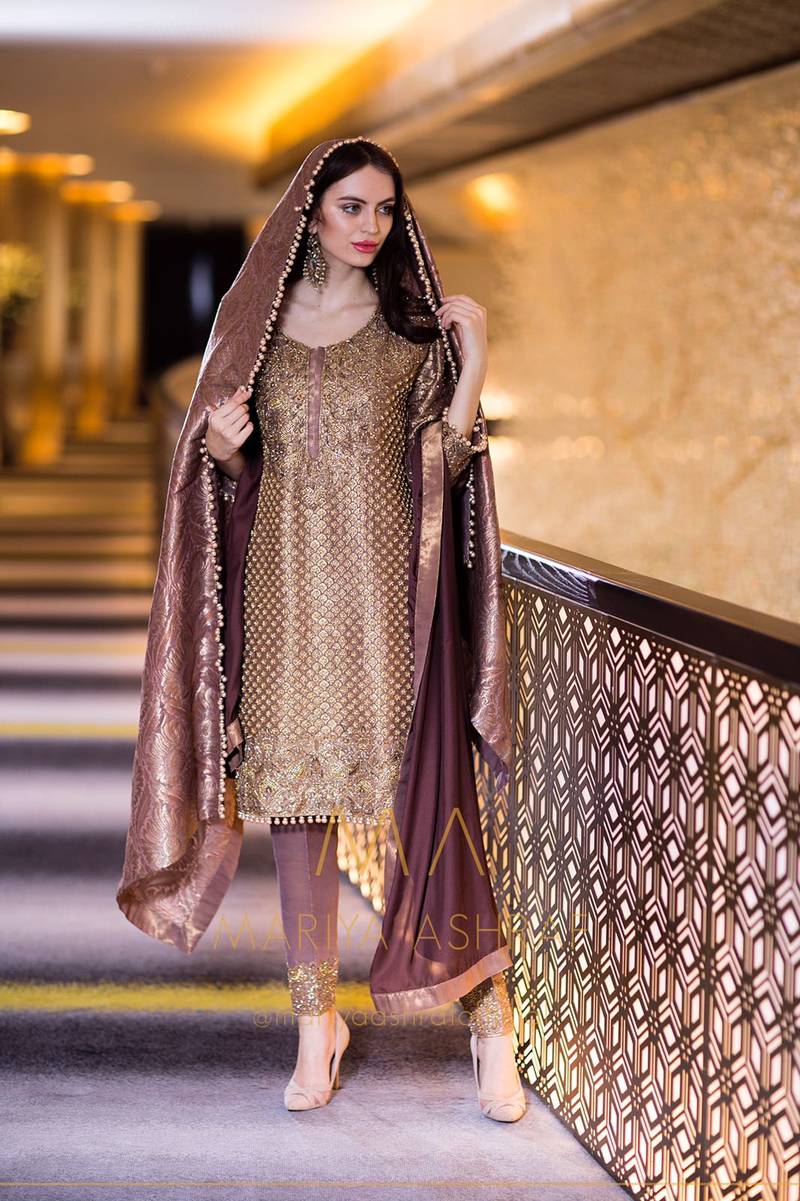
Buy this dress here
What is your market?
I have a closed group of clientele from the UK, Ireland, Middle East, Pakistan and Kashmir. This is the first time I am launching a collection in Kashmir.
Tell us about your workshops.
I have a workshop in Qatar where we do finishing and tailoring. I have outsourced the handwork to artisans in Delhi, Karachi and Hyderabad. Lately, I have also set up a workshop in Kashmir and am working with a group of ladies who are working from home and master in hand embroidery. I have employed a coordinator who would coordinate for me with my team in Kashmir.
Tell us about the embroidery work on your fabric and tailoring work.
I strictly use pure fabrics and hand embroideries. I have used Japanese and Korean velvet and Hareer, French chiffon, Italian crepe and organza, Banarasi jamawar and Mysori silk. In handwork my favorite is old style ‘Thos Dabka’ – Hammer Work and the current collection has 100% hand embroidery and consists of French knots, threads, pearls, stones and hammer work.
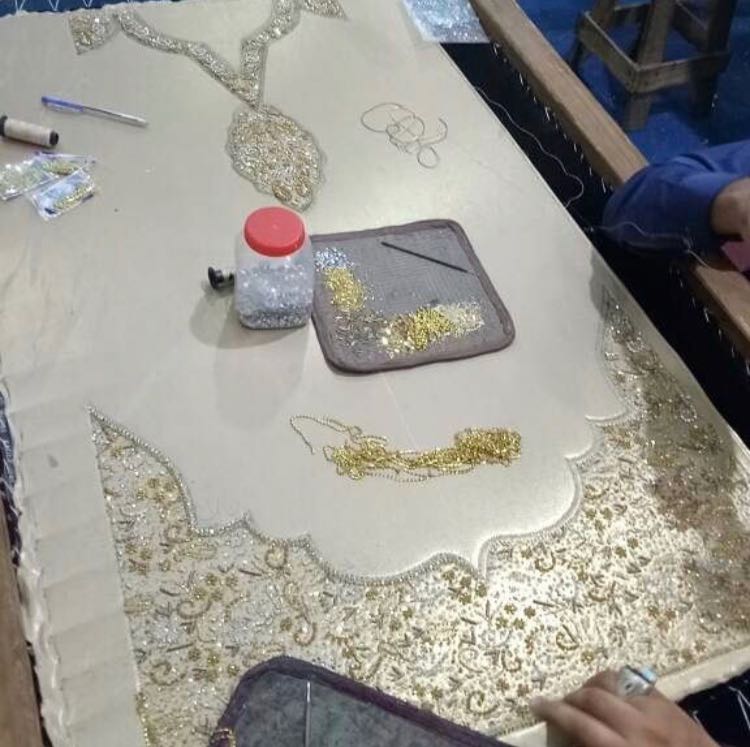
How do you sell your products?
Till now we would create a portfolio of each of our collection which was then shared with our closed client group. Our marketing was restricted only to word of mouth and client referrals. Now it’s available on Instagram and Facebook and is also open for Kashmir.
Tell us about your team or who are the people who help you in this?
I have a team of 8 including a workshop manager, a tailor master, assistant tailors and specialized artisans. I have also set up a network of lady artisans in Kashmir who work from home for me. I have a coordinator who coordinates with this team of artisans. Apart from this, we have on board our photographer, Tahir Mehmood who is very well known in the Middle East and our Model Liliya Levaya who has ramp walked for many international labels!
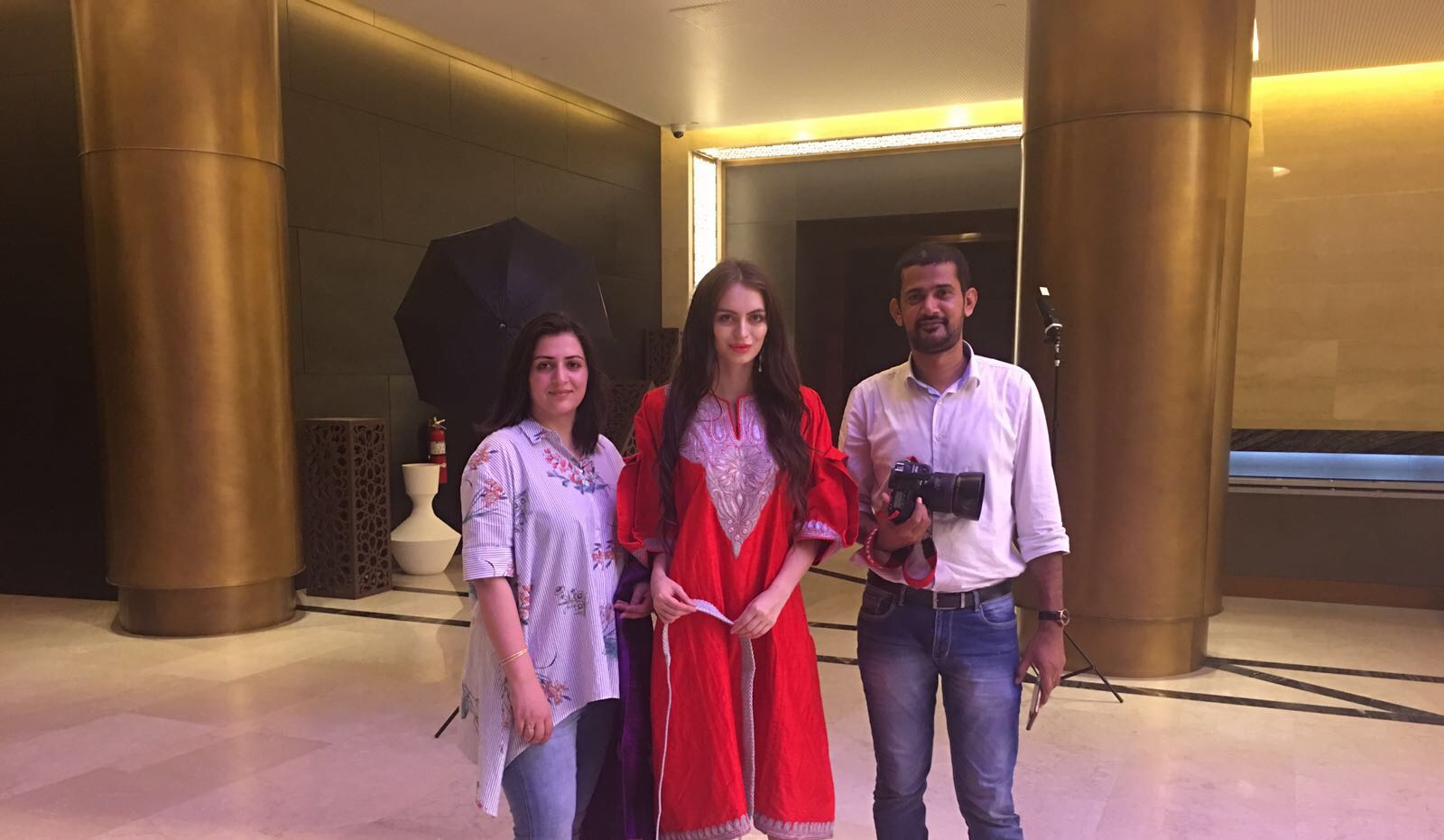
Tell us about the struggles you faced in this line of business.
I always faced difficulty in locating our old traditional handwork and embroideries. It is vanishing and is being replaced with machine loom and machine work. I want to revive the concept of handwork which is diminishing in our society. It was very difficult to tap the right artisans who would master in hand embroideries and use only needle, threads, beads, wire and hammer. Once the artisans were tapped it was very difficult to unlock their potential, convincing them and making them believe in my design thought process. I am not a great fan of the new fashion trends; neither do I follow any of them (even though I’m very aware of them). I have always been looking for hand dye, hand embroidery, handloom which, unfortunately, is very uncommon now and is time-consuming and expensive which also makes it challenging to survive with a thick clientele.
Buy this dress here
Being a Kashmiri did you face any Luk kya Wanan comments?
Not really. In fact, Kashmir in general and my family, in particular, have been very supportive and welcoming. With such talented youth and so many new entrepreneurs and startups, I feel even more motivated to take this initiative forward.
Are you working with Kashmiri artisans?
My upcoming collection Sozni is dedicated to the artisans of Kashmir. Sozni means discovering a purpose and also depicts the famous Sozni work of Kashmir. This collection is in production and will be entirely developed in Kashmir. I am working with a group of ladies who work from home. Very often we connect and meet to discuss the themes. It is wonderful to work with these talented ladies.
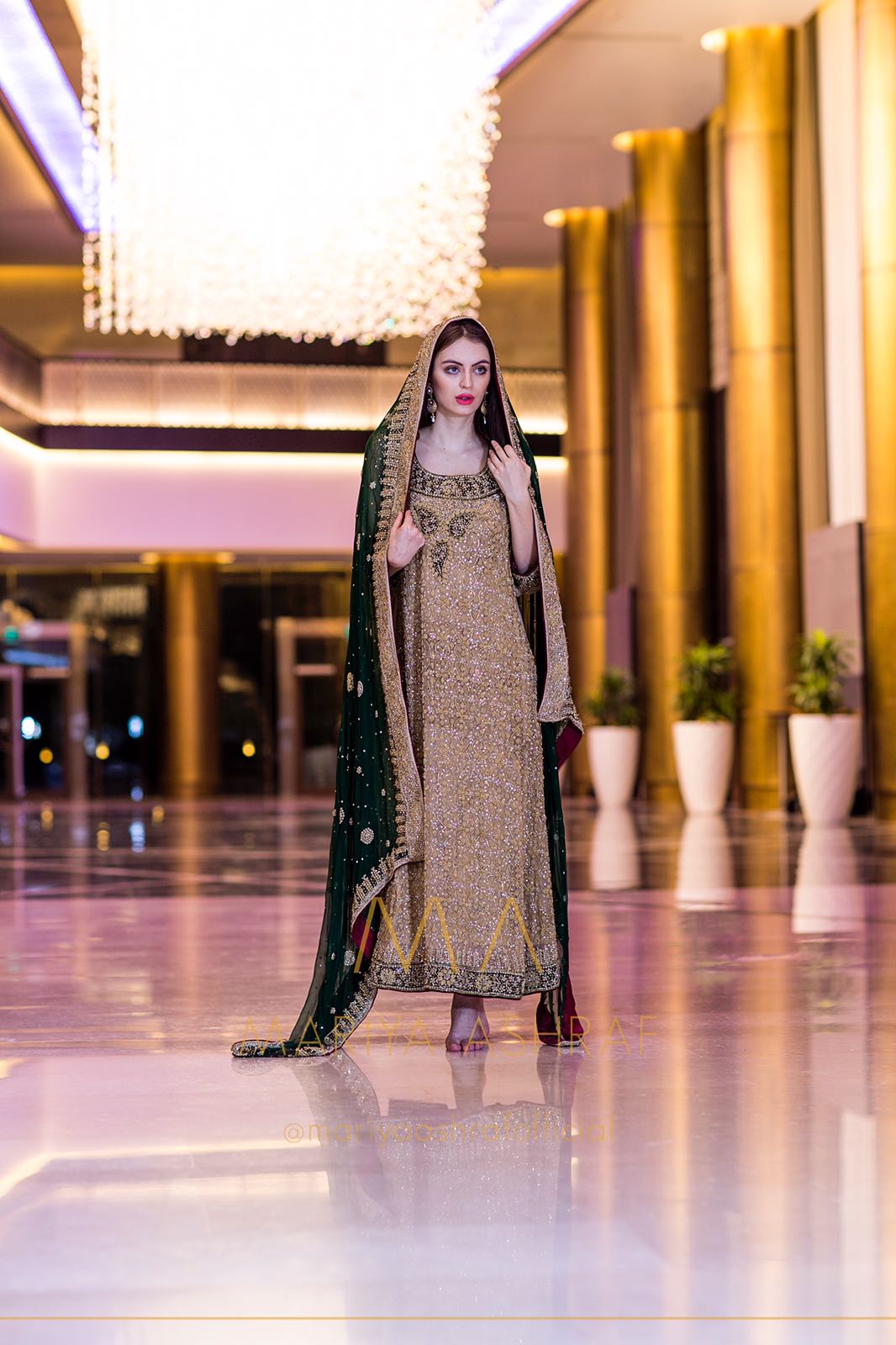
Buy this dress here
Where do you see your venture in coming years?
There is so much forgotten, untapped and untouched reserve of creativity in Kashmir as well as in other states; I want to explore that. I want to widen the horizons for my designs and yet keep the old tradition and craftsmanship simple and intact.
Any tips for any Kashmiri looking to make clothing line of business as a profession?
Live it if you dream it.

